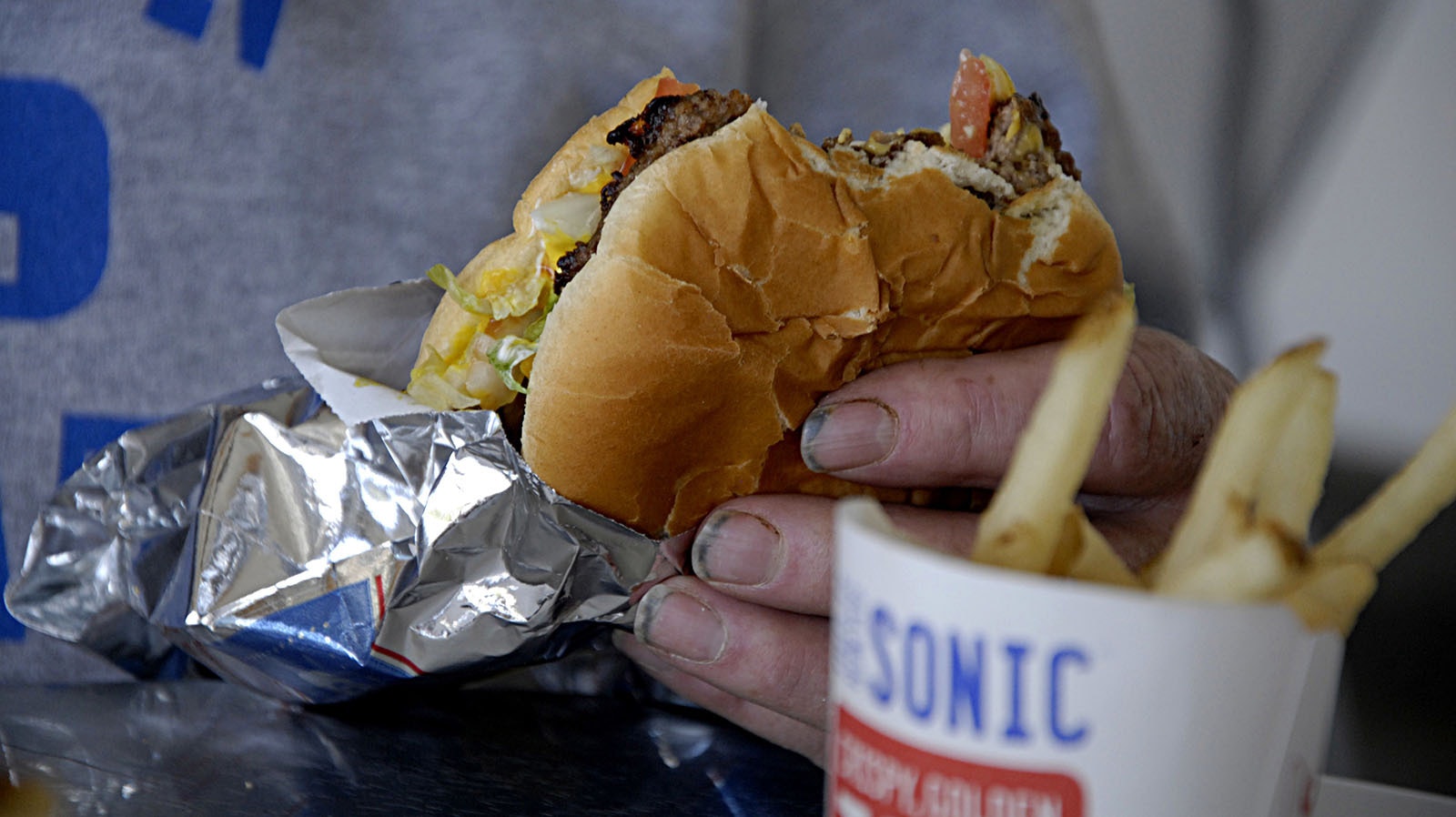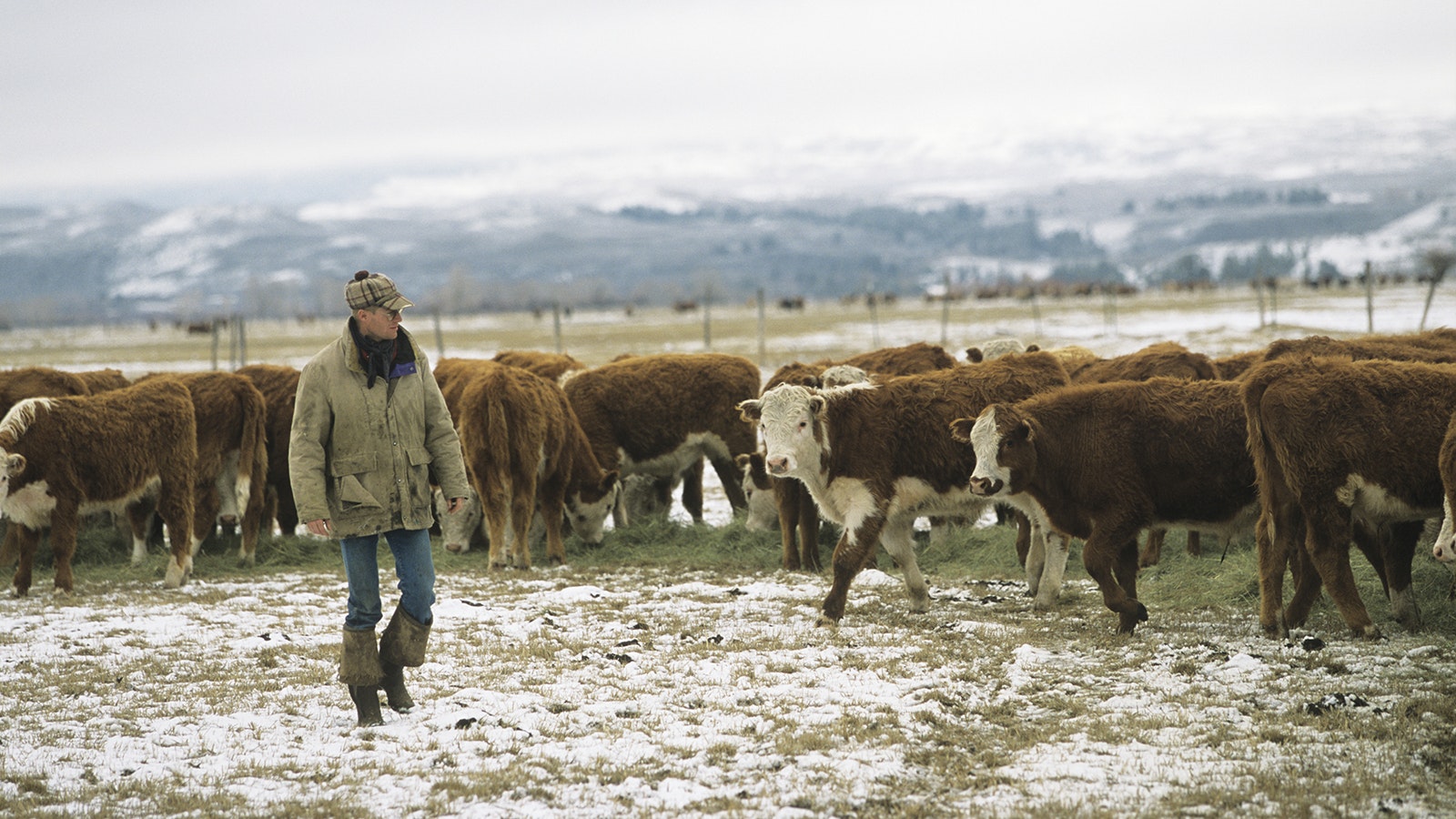Should restaurants warn customers about the climate impacts of their menu selections?
A study published by the American Medical Association suggests climate impact labels on restaurant menus could be an effective strategy to encourage customers to make more sustainable restaurant food choices, which means especially abstaining from red meat.
While the study itself doesn’t call for regulations that force restaurants to include climate impact information on menus, the study’s lead author told CNN that if the warning labels are to be adopted on a large scale, “legislation or regulation may be necessary.”
What Pyramid?
Dennis Sun, a fourth-generation Wyoming rancher and publisher of the Wyoming Livestock Roundup, said that a lot of government schemes to change people’s diets really have no impact.
In December, he penned an editorial in the Roundup pointing out that the U.S. Department of Agriculture designed the “food pyramid” in hopes of encouraging people to eat six to 11 servings of bread, pasta and rice — the bottom of the pyramid. At the top were two servings of meat or eggs.
It turned out later that such a diet could contribute to obesity.
But most people don’t base their eating habits on the USDA campaign. A recent study, Sun noted in his editorial, found that 75% of Americans had no idea what the food pyramid is.
“If people go out to eat or buy food at the grocery store, I don’t think climate impact is a pressing issue for them today,” Sun told Cowboy State Daily. “I think they’re more worried now about what they’re paying for it.”
Methodology
The researchers took their data from an online survey of more than 5,000 Americans.
The survey asked participants to imagine they’re in a restaurant and about to order dinner. They were then shown a fast-food menu and asked to select one item to eat.
The menu was designed to look like those in a large fast-food chain with 14 items, including beef — real and plant-based — as well as chicken nuggets, fish sandwiches and salads.
Participants were then asked to make choices that promoted the supposed unsustainability of items with red meat or the sustainability of items without. The results found that people were more likely to avoid items with red meat if the item had a red warning on it and the veggie items had green halos.
Some news outlets have reported conclusions that the study demonstrates that the government should intervene in people’s diets.
A recent article in The Guardian about the study notes: “In April, the Intergovernmental Panel on Climate Change (IPCC) report urged world leaders, especially those in developed countries, to support a transition to sustainable, healthy, low-emissions diets.”
Calorie Counts
Another problem with studies that look at menu warnings as a means to change diets is they can produce very different results in the real world.
Studies purporting that people changed their eating habits when calorie counts were included on menus produced a number of local, state and federal regulations.
In 2018, the Food and Drug Administration began requiring chain restaurants across the country to publish clear calorie information, as you see in places like McDonalds and Taco Johns.
Or perhaps, like most people, you don’t really notice.
Between 2000 and 2020, obesity rates in America rose from 30% to 42%.
The regulations cost those chains about $1 billion to implement, and virtually every study published to date concluded they have no impact on consumer choices.
The few that have found calorie reductions as a result of the labels find reductions ranging from 25 to 100 calories per person per meal. So, less than half a muffin in a best case scenario.
Locals Mixed
Wyomingites picking up a meal at a Taco Johns in Cheyenne on Tuesday were mixed about if climate impact menu warnings would change their choices.
Brenda Lyday said she doesn’t go out to eat a lot, so when she does, she’s not concerned with the calorie counts or any other information on the menu.
“It wouldn’t impact me personally,” Lyday said. “When I go out to eat, it’s a treat.”
Nickie Tisthammer, on the other hand, said she does look at calorie counts and other nutrition information when she selects her meal, particularly the fat content of menu items. So, if there were information on the climate impacts of the food she eats, that would influence her choices.
“I would take that into account, sure,” Tisthammer said.
Picked On
The cattle industry has become a primary target for climate activists, many of whom argue that going vegan is a great way to fight climate change.
“Beef is pretty easy to pick on,” Sun said.
Michelle Miller, who brands herself as the “Farm Babe,” is an agricultural advocate who travels the country giving speeches that dispel myths about agriculture. Those include beliefs that organic is healthier than conventional foods, genetic modification is dangerous, that ranchers mistreat their animals and that raising livestock is bad for the environment.
She’s been quoted in articles on Vice, Forbes, the Dr. Drew Podcast and Business Insider. She was instrumental in getting Burger King to reconsider an ad campaign exaggerating the climate impacts of beef.
Miller told Cowboy State Daily that climate change is important and something all industries are thinking about, including the agriculture industry.
However, livestock accounts for just 4% of U.S. greenhouse gas emissions and cattle just 2%, she said. Agriculture as a whole, including livestock, is 10% of greenhouse gas emissions.
“People want to sit here and blame the cows. Meanwhile, living in their high-rise smoggy apartments in Los Angeles, they don’t want to point the finger at themselves,” Miller said. “Agriculture is the scapegoat for people who don’t really understand it.”
No Vegans
Miller said that giving up red meat ignores all the other products that are derived from thousands of cattle byproducts.
“If people want to watch football every weekend. Well, guess where the pigskin comes from?” Miller said.
Other items that people enjoy thanks to ranchers are cosmetics, instruments, textiles, home insulation, paints, crayons, tires, dog food, clothing, luggage, upholstery and dish soap.
“There’s no such thing as vegan,” Miller said. “That’s kind of where the message gets lost, because they don’t understand or believe that we’re a lot more than just a food industry. We’re an everything industry.”
She also pointed out that, while there’s pros and cons to economies of scale, the scaling up of raising cattle allows for things like methane digesters that utilize manure for energy.
“I mean, that’s pretty awesome,” Miller said.
Grazing also helps manage forests and reduce fires, and much of the land we raise cattle on isn’t suitable for other uses. So, the idea that huge amounts of land are going to satisfy meat diets ignores that land would otherwise go to nothing.
“You could almost argue that beef is saving the planet,” Miller said.





